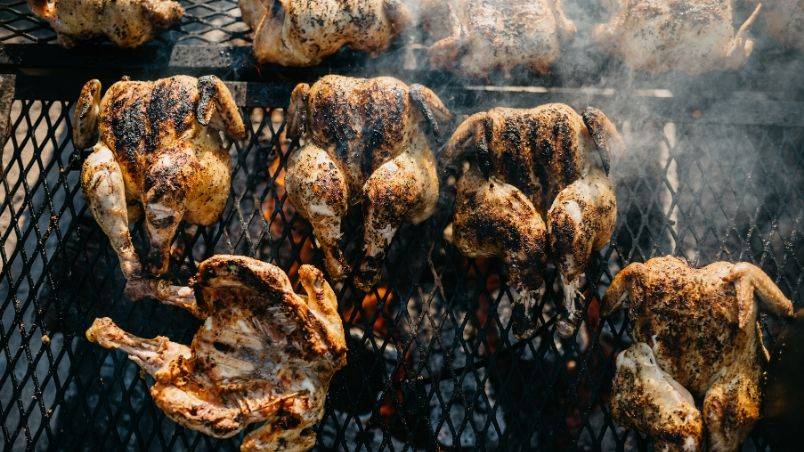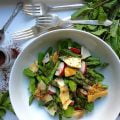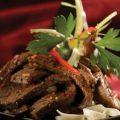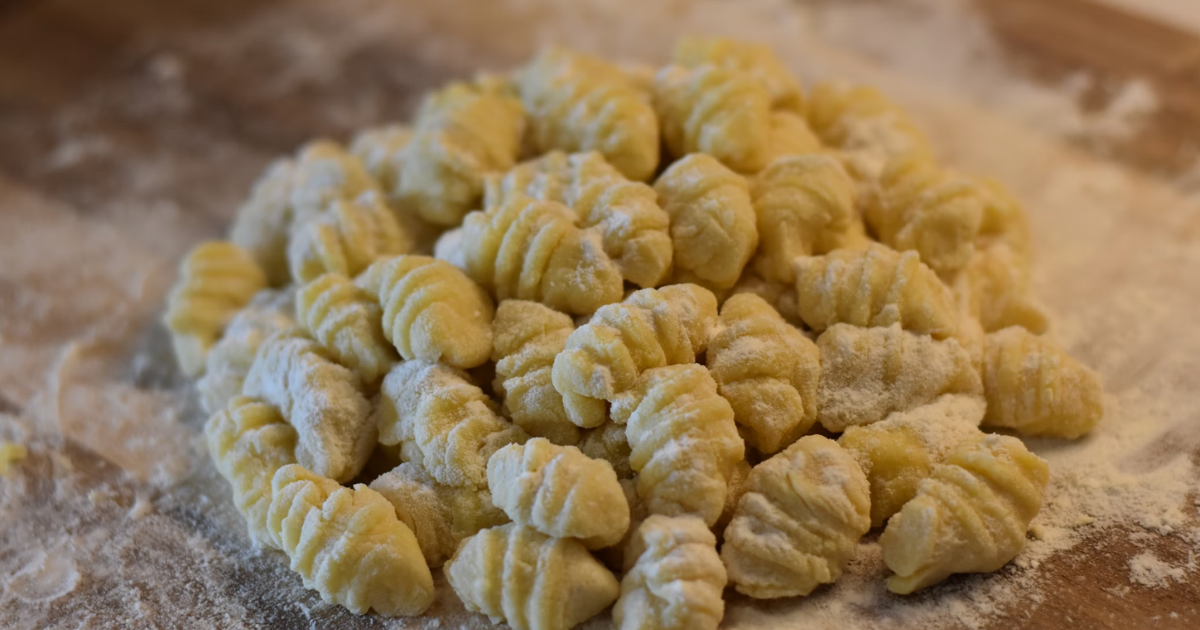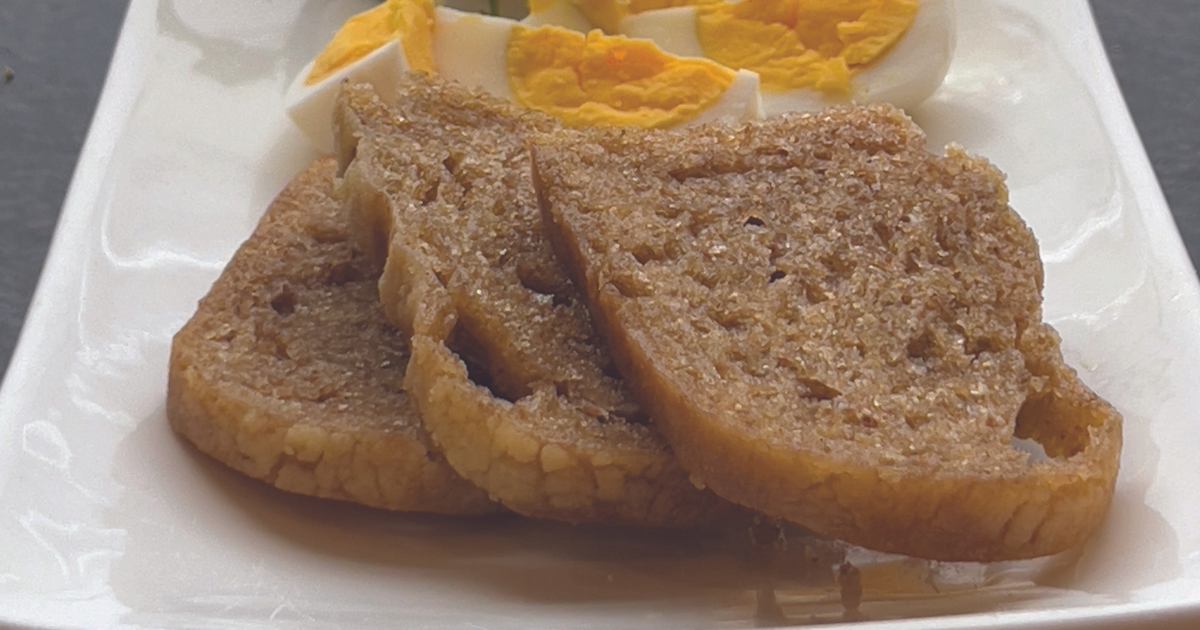Cooking a whole chicken not only offers a cost-effective option per pound compared to buying individual pieces, but it also provides an opportunity to learn the skill of breaking down a whole bird — a valuable skill you’ll never regret having. Even better, utilizing all parts of the chicken, including the carcass, for flavourful stock ensures nothing goes to waste and adds even more value to your cooking endeavours. Roasting a whole chicken is a delightful culinary experience that yields tender, juicy meat, crispy golden skin, and a mouthwatering aroma, making it a truly satisfying and delicious meal.
Use the freshest, local farm-raised chicken you can find. If chicken is the only protein for eight guests, you may wish to double this recipe and do two chickens; if you do, don’t forget to double the herb crumble ingredients.
3 cloves garlic, finely chopped
1/4 cup chopped fresh rosemary leaves
1 tbsp coarse salt
Freshly ground pepper to taste
1 whole chicken,
3 1/2 to 4 lb 2 tbsp olive oil + more for drizzling roasting pan (optional)
Fresh Spring Vegetables (recipe follows) Preheat grill or oven to 400°F. If roasting in the oven, grease the roasting pan large enough to hold the chicken with a drizzle of olive oil to prevent sticking; set aside. In a bowl, mix garlic, rosemary, salt and pepper.
Rub chicken all over with olive oil. Sprinkle liberally with herb mixture. Place the breast side up on the grill with indirect heat or in roasting pan if you are using an oven.
Grill or roast until the meat thermometer inserted into the thigh registers an internal temperature of 165°F, about 1 hour. To cut the chicken into 8 pieces, place the chicken on the board and cut the legs off with the thigh attached or separated, depending on how large you want your pieces. Cut the chicken down the middle and separate the 2 breasts and 2 wings; these can be cut in half to offer smaller pieces. Arrange on a serving platter along with Fresh Spring Vegetables.
Fresh Spring Vegetables
Serves 8
If you can find fiddleheads, they do make a lovely addition to the vegetable platter. They can also be added to the salad course. When they are available, I use them as often as possible—they are indeed a delicacy. If you cannot find them, simply increase the amount of carrots and asparagus. Sometimes I add fresh spinach if it’s ready in the garden.
This dish with a platter with deep greens and will be a perfect addition to your full moon supper.
1 lb asparagus
1 lb fiddleheads (optional)
8 new young carrots, washed and peeled if necessary, cut lengthwise
2 tbsp butter
2 tbsp olive oil
1 clove garlic, chopped
Coarse salt
1/4 cup finely chopped fresh parsley or chives
In a large pot, bring a small amount of salted water to a boil.
Wash and cut off woody stems of asparagus; discard woody ends. Place stalks in pot and boil, covered, about 3 to 5 minutes, depending on stalk thickness. Remove stalks from the water and let drain.
Rinse fiddleheads (if using) well under cold running water. Cut off any brown parts on the stems. In a second pot of boiling salted water, cook fiddleheads until tender, about 10 minutes; drain and reserve.
Over high heat, bring a third pot of water and 1 tsp of salt to a boil. Add carrots and gently boil until just tender, about 2 minutes; drain and reserve.
Just before serving, heat butter and oil in a large skillet over high heat. Add garlic and par-cooked vegetables; cook just to heat through. Sprinkle with coarse salt and add parsley.
Garnish platter with a few edible flowers, such as chive blossoms, nasturtiums or dandelions.
About Danielle French
I founded South Pond Farms in 2008. The property is on the Oak Ridges Moraine in the traditional territory of the Anishinaabe Mississauga. South Pond started as a small food delivery business making fresh prepared meals from ingredients in my garden. Together with my family, we restored the barn, the iconic heritage silo and the land to become a destination for authentic culinary experiences, weddings, celebrations, workshops. Inspired from the farm, I also create a line of culinary products and gifts.
In 2021, I was ready to move away from the farm. As much as I loved the land and the country, it was time to let someone else bring their passion to what we had created. My new home is in Peterborough, Ontario where I’m taking some time to write, contemplate next steps, train my dogs, blog about recipes and interesting explorations and unpack!

